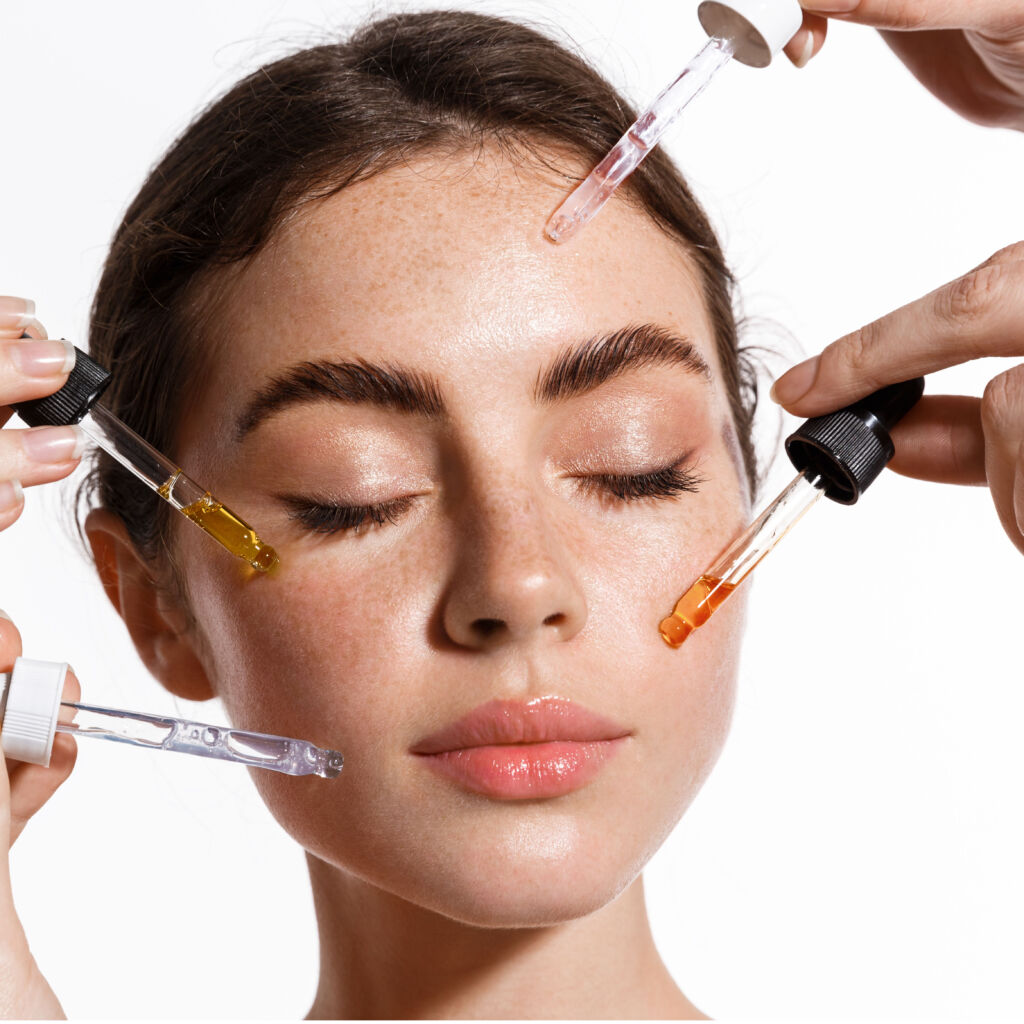Choosing the Best Retinol Serum for Your Skin
Retinol, Bakuchiol, Granactive Retinoid, and Retinaldehyde
Discover the best retinol serum for your skin. Compare retinol, retinaldehyde, granactive retinoid, and bakuchiol. Learn how to choose the most potent over-the-counter retinol or a gentler option for sensitive skin.
Retinol Serum: Comparing Options and Choosing the Best for Your Skin
Retinol serum is a widely recognised skincare product for its anti-ageing and acne-fighting benefits. Derived from vitamin A, retinol increases cell turnover, stimulates collagen production, and reduces fine lines, wrinkles, and hyperpigmentation. Whether you’re looking for the best retinol serum, exploring the differences between retinol vs. retinoid, or considering the strongest over-the-counter retinol, understanding your options is essential.
Vitamin A is a cornerstone ingredient in skincare, valued for its ability to slow aging, support prejuvenation, and enhance rejuvenation. However, its critical role in repairing skin damage often goes underappreciated. All forms of vitamin A work by interacting with retinoid receptors within skin cells. For a deeper dive into the science behind its benefits, explore how retinol contributes to slow aging.

Retinol
Retinol Serum:
- Potency: Mild to moderate, making it suitable for beginners or sensitive skin.
- Mechanism: Requires two conversion steps in the skin to become retinoic acid (the active form).
- Availability: Over-the-counter (OTC).
- Irritation: Gentler than prescription retinoids but may still cause dryness or redness in some users
Retinol Serum vs Granactive Retinoid
Granactive Retinoid:
- Active Ingredient: Hydroxypinacolone Retinoate (HPR), a direct retinoic acid ester.
- Mechanism: Converts directly to retinoic acid without the intermediate steps required by retinol.
- Potency: considered stronger than retinol.
- Irritation: Less likely to cause irritation compared to retinol.
Retinol Serum:
- Active Ingredient: Retinol, which undergoes a two-step conversion process to retinoic acid.
- Potency: Less potent than granactive retinoid.
- Irritation: More likely to cause mild irritation, especially for sensitive skin.
When to Choose:
- Granactive Retinoid is ideal for faster results with reduced irritation.
- Retinol serum remains a versatile option for first-time users or those with mild concerns.
Retinol Serum vs Retinaldehyde
Retinaldehyde:
- Potency: More potent than retinol, requiring only one conversion step to retinoic acid.
- Efficacy: Delivers faster results.
- Irritation: slightly more likely to irritate the skin compared to retinol.
- Availability: OTC but less commonly found than retinol.
When to Choose:
- Retinaldehyde suits those seeking more potency than retinol without stepping into prescription-strength products.
Retinol vs Bakuchiol Serum
Bakuchiol:
- Origin: Plant-based alternative derived from the Psoralea corylifolia plant.
- Mechanism: Mimics retinol’s effects without direct interaction with skin cells.
- Efficacy: Less potent than retinol but provides anti-ageing benefits over time.
- Irritation: Gentle and suitable for sensitive skin, pregnant or breastfeeding individuals.
Retinol Serum:
- Mechanism: Directly interacts with skin cells to stimulate collagen and increase cell turnover.
- Efficacy: More potent and delivers faster results.
- Irritation: This can cause dryness and redness.
When to Choose:
- Bakuchiol is best for those seeking a gentle alternative to retinol.
- Retinol serum is more effective for visible and faster anti-ageing results.
How to Choose the Best Retinol Serum
- Beginner Friendly: Look for gentle formulations if you’re new to retinoids, such as a low-concentration retinol serum.
- Advanced Concerns: Opt for granactive retinoid, retinaldehyde, for more targeted results.
- Skin Type Considerations: If you have sensitive skin, start with bakuchiol or a barrier repair serum to prepare your skin for retinoids.
Key Tips for Using Retinol Products
- Start with a lower concentration and use it 1–2 times weekly to build tolerance.
- Always apply sunscreen during the day, as retinoids increase photosensitivity.
- Use a moisturiser to minimise dryness or irritation.
